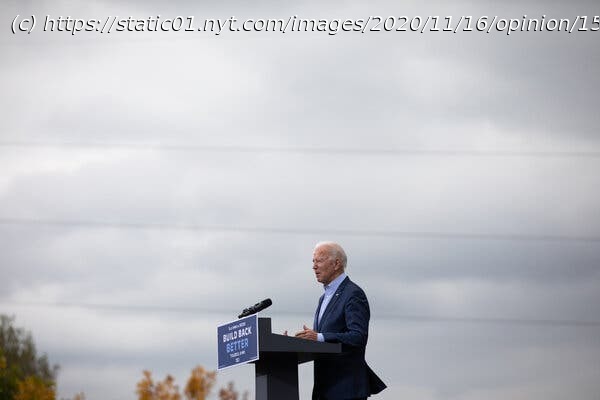The importance of vision, expertise, honesty and simple decency in the management of world affairs cannot be overstated.
President-elect Joe Biden has signaled that he will move swiftly to restore dignity to the badly sullied image of the United States; respect for the professionals of America’s diplomatic, intelligence and military services; and a more predictable, nuanced and sympathetic approach to foreign relations. That message of a restoration of norms is likely to resonate in many capitals around the world, as it did with an electorate that gave Mr. Biden a decisive victory over Donald Trump. There is much that Mr. Biden can do in his first 100 days. He has already vowed to promptly rejoin the Paris accord on climate change and to make climate action central to his administration. He has declared his intention to restore the United States’ relationship with the World Health Organization, signaling that the United States will join forces with the rest of the world to halt the rampage of the coronavirus. Mr. Biden is also expected to organize a summit of democracies, and to recommit the United States to exposing human rights abuses wherever they arise, whether in China, Russia, Saudi Arabia or Turkey. At the same time, he will seek ways to revive the nuclear deal with Iran, and agree with Russia to extend the New START treaty on limiting strategic nuclear arms. Hopefully, Mr. Biden will terminate American support for Saudi Arabia’s terrible war in Yemen. These are all welcome signs of America’s imminent return to a role in the world that better reflects our historical values. The team Mr. Biden is said to be assembling looks as if it will be composed of veterans of administrations past and paid-up members of the foreign policy establishment. If Republicans retain control of the Senate, Mr. Biden’s appointments could be constrained by the need to get them confirmed, while the scope of his actions will often be reduced to what can be accomplished through executive orders.






